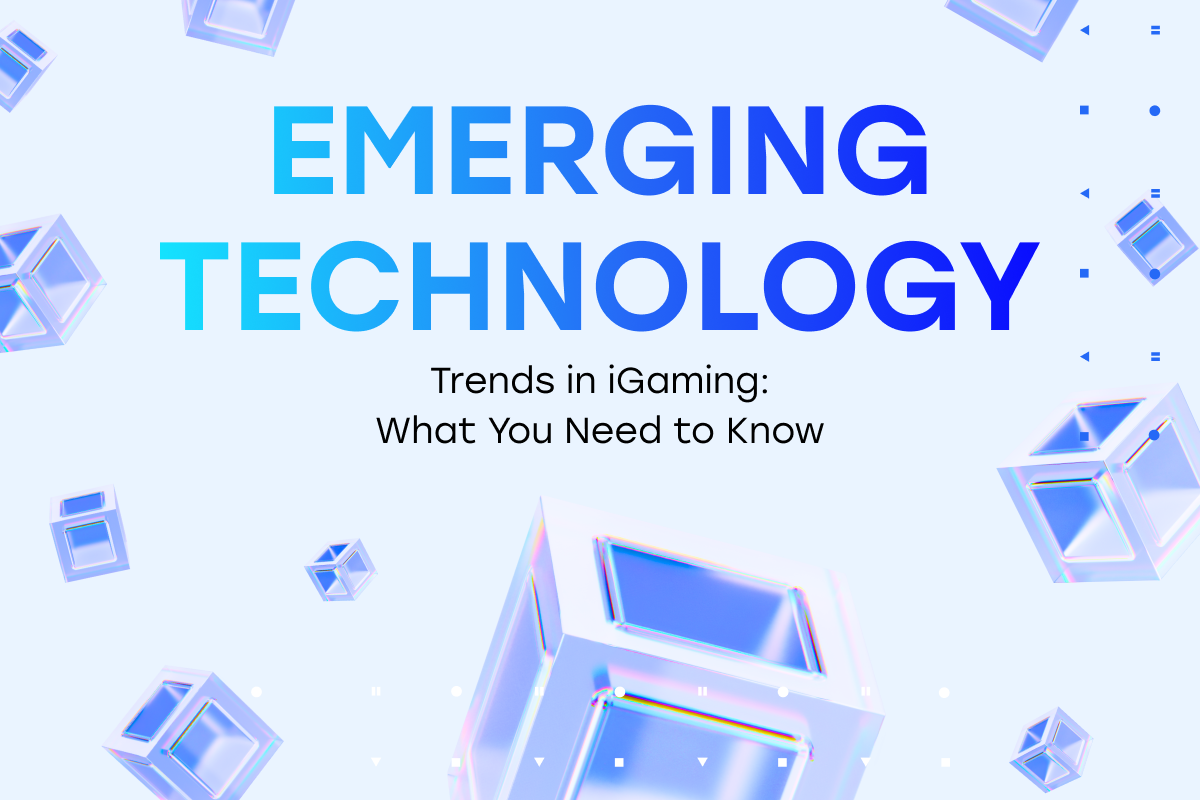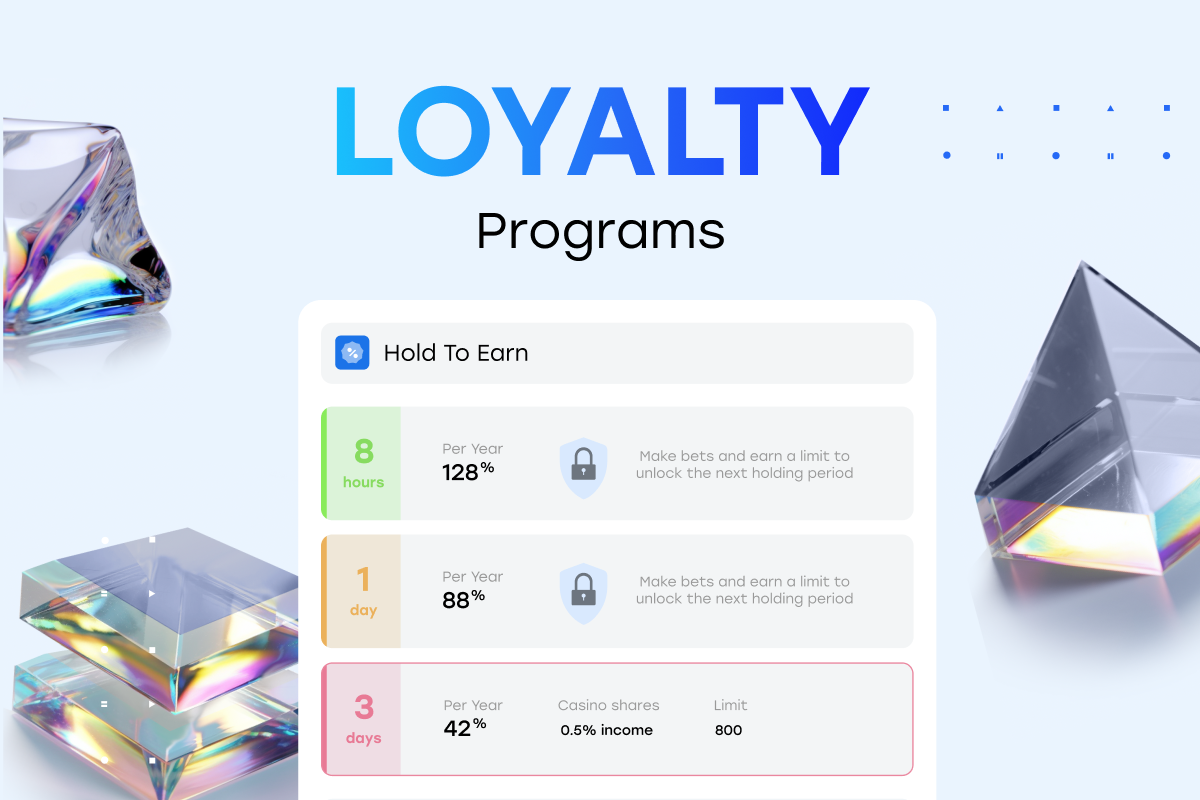Emerging Technology Trends in iGaming: What You Need to Know

Since its establishment in the early ’90s, trends in iGaming industry has experienced rapid growth. While many would attribute this to mobile devices and their constant development, one could also argue that it is really because of the technological advancements that came alongside these smartphones. Encompassing online casinos, sports betting platforms, and various other gaming operators — the industry has leveraged the use of new technologies and a wealth of data to continue to evolve and adapt to consumer preferences.
In a bid to stay ahead of the game, iGaming brands constantly seek innovative ways to enhance user experience, increase engagement, and boost revenues. In this article, we will highlight a few emerging technology trends in iGaming that can help them achieve all that and more. So whether you are a seasoned online gambler, an iGaming operator, or simply curious about the latest tech trends in iGaming, here are a few tidbits from the evolving landscape of iGaming.
Virtual Reality (VR)
Virtual Reality has been around for quite some time now, with the first head-mounted display (HMD) created in 1968, yet its capabilities back then pale in comparison to what the technology can achieve today. As the name suggests, VR technology allows players to step into virtual worlds, from real-life locations to alien realms. In iGaming this means the ability to walk the halls of huge casinos and try out their games without ever leaving the comfort of your home. The keyword here is reality, with iGaming brands equipped to give players authentic gambling experiences based on real-world locations without the downtime of travel, the possibility of getting lost, or even having to get dressed.
In 2020, the COVID-19 pandemic gave humanity a glimpse into a world in which travel is restricted, highlighting the vulnerability of brick-and-mortar casinos. To a VR establishment, it would have been business as usual, opening up opportunities for more immersive experiences — places where players could virtually watch live games and place bets as if they were at the stadium or casino during lockdown.
For operators, VR can also be used as a powerful marketing tool to attract new players and differentiate their brand from competitors. Casinos will be able to grow larger and accommodate even more players with only a small amount of space required to run the business, thus reducing construction costs, staffing needs, and other operational costs.
Augmented Reality (AR)
Another means of enhancing player experiences is Augmented Reality (AR), which literally adds a new layer to iGaming. With AR, operators are able to superimpose images and text on anything in our immediate environment, using an interface such as a lens, headset, or mobile phone. These objects can also be animated and produce sound through speakers, giving players the impression that these things are real.
The major difference between AR and VR is that the latter puts players in a virtual space, while the former places virtual elements and objects in physical spaces. Both allow players to interact with things that aren’t physically in the same space as them.
AR is a great addition to iGaming’s arsenal, particularly sports betting. It could allow users to access real-time data, stats, and visualizations overlaid on their screens while watching a live game. This technology enhances the bettors’ experience by providing them with more in-depth information, enabling them to make better-informed decisions.
In addition, AR also opens up opportunities for innovative marketing campaigns and social betting features that connect fans during major sporting events. As the technology continues to advance, it will be a joy to see what new experiences AR will be able to craft in the near future.
Holograms
While not widely adopted in the iGaming industry yet, holographic technology has been used in the entertainment industry for quite some time. Bands and solo artists with digital avatars choose this technology to bring their alter egos and fans into the same space. Deceased musicians have also been digitally resurrected at concerts and events.
Holographic technology creates three-dimensional visual representations that give viewers the illusion of depth. It has long since captured the imagination of science fiction writers, directors, and enthusiasts everywhere. When well implemented, players could interact with holographic dealers in real-time, enhancing the social aspect of iGaming and making the experience more reminiscent of in-person casinos. They could even turn their living rooms and bedrooms into classy, luxurious casinos, complete with stunning visuals and lifelike interactions, taking the immersive experience of iGaming to a whole new level.
While they are not yet a mainstream trends in iGaming industry, holograms have the potential to revolutionize the way players experience online casinos and betting platforms. The road to widespread adoption in iGaming will be long, but the possibilities it holds are exciting, and we get front-row seats as this technology begins to take ground.
Blockchain Trends in iGaming
Blockchain technology is renowned for its transparency, security, and immutability, making it an ideal match for the iGaming industry. Traditional online casinos had to go to quite some trouble to convince players that their games were fair and not tampered with. Blockchain addresses these concerns by offering a decentralized and truly transparent system where game outcomes are verifiable and cannot be manipulated.

In blockchain-based iGaming platforms, random number generators (RNGs) are used to determine game outcomes, with the results recorded on the blockchain. Players can access these records to verify the fairness of each game, ensuring that neither the players nor the operators have an unfair advantage.
This technology also facilitates faster and more secure transactions, eliminating the need for third-party payment processors and reducing transaction costs. This gives players quicker withdrawals while operators get to streamline their financial processes.
Additionally, blockchain technology opens up new possibilities for innovative gaming models, such as decentralized casinos and peer-to-peer betting platforms, where players can interact directly with one another without any intermediaries.
Artificial Intelligence (AI)
Artificial Intelligence has existed across works of fiction for decades, but only in recent years has it become mainstream. Gradually becoming more and more integral in the way we work, play, and live, AI has seemingly come to stay. Integrating AI technology in iGaming will help operators enhance user experience through personalized content and promotions. Its algorithms are able to analyze vast amounts of player data in little to no time, providing insight into playing habits, preferences, and demographics, to offer tailored recommendations for games, bonuses, and promotions.
Furthermore, AI gives us the means to detect patterns and spot problematic gaming behavior, allowing operators to intervene and offer support to at-risk players. By preventing the harm addictions can cause, your brand puts the welfare of its users at the forefront, proving that the customer comes first.
5G Internet
The rollout of 5G technology around the world is transforming mobile gaming and, consequently, the iGaming industry. With faster and more stable internet connections, players can enjoy high-quality graphics, smooth gameplay, and seamless live-streaming on their mobile devices.
This trend is leading to a surge in mobile casino apps and mobile-first gaming platforms. These casino apps and betting platforms can harness 5G capabilities to deliver superior gameplay, improved user interfaces, and real-time interactions between players. It also enables the growth of live dealer games, where players can enjoy an authentic casino experience with live croupier streamed directly to their devices. By creating immersive experiences such as this one, operators build a stronger sense of trust and engagement between players and dealers, replicating the social aspect of brick-and-mortar casinos.
Cloud Gaming
Cloud gaming is a game-changing technology that allows players to stream their games over the internet without the need for powerful, high-end hardware. With it, we say goodbye to the days of regularly replacing or upgrading our mobile phones, PCs, laptops, or iMacs. This technological trend has a transformative impact of enhancing accessibility and convenience for players in the iGaming industry.

Cloud gaming works by running games on powerful servers located in data centers anywhere in the world. Players access these games on their devices by streaming audio and visuals in real time while transmitting their inputs back to the server. By harnessing the processing power of remote servers, players get to enjoy high-quality graphics and smooth gameplay on devices that would never have run them in normal circumstances. Also gone are large data downloads and long installation times, allowing iGaming operators to expand their reach and cater to a broader audience.
Technology Waits for No One
Successful industries are at the forefront of technological innovation, and emerging technologies are reshaping how players can engage with online casinos and betting platforms. Virtual reality, augmented reality, holograms, blockchain, artificial intelligence, 5G internet, and cloud gaming are just some of the key trends in iGaming driving the evolution of industry today. As technology continues to advance, we can expect even more exciting developments in the years to come, making iGaming an increasingly immersive and thrilling experience for players and operators worldwide.
At Trueplay, we leverage the use of blockchain technology in our products, ensuring player loyalty through transparency, the ability to earn, and more chances to win. We facilitate unforgettable gaming experiences that serve to build strong connections between your brand and customers through our loyalty program. And best of all, we’re still leveraging technology to improve our products, one update at a time.
Contact us to learn more about what Trueplay’s technology has to offer your brand.




